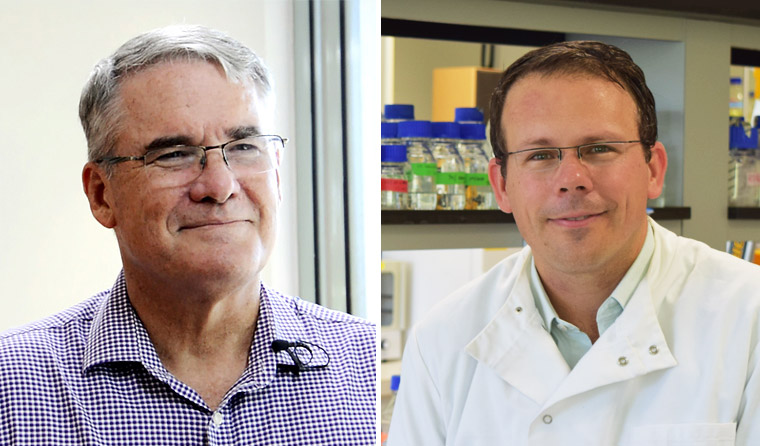News
Pesticide associated with increased cardiovascular mortality: Research
The use of pyrethroids may be on the rise, but Australian experts remain unconcerned.
 Pyrethroids account for more than 17% of the global agrochemical market.
Pyrethroids account for more than 17% of the global agrochemical market.
Pyrethroids, a class of pesticides, account for more than 17% of the global agrochemical market.
And their use has recently increased, likely in response to the declining use of organophosphate pesticides.
So, should the fact new research, published in JAMA Internal Medicine, has found exposure to pyrethroids increases the risk of all-cause and cardiovascular mortality, set off alarm bells?
In an invited commentary on this new research, Dr Steven Stellman and Dr Jeanne Mager Stellman, both from the Columbia University Mallman School of Public Health in New York, voiced their concerns over these findings.
‘Other than cigarette smoking, few, if any, chemical exposures are known to trigger a [threefold] increase in the risk of death from heart disease, especially in [people] younger than 60 years,’ they wrote.
Dr Stellman and Dr Mager Stellman believe the study ‘challenges the assumption’ that exposure to these pesticides are safe.
However, not everyone agrees with such cautions.
Dr Evan Ackermann, GP and past Chair of the RACGP Expert Committee – Quality Care, told newsGP he is not concerned about pyrethroid use based on the results of this study.
‘It’s one of those initial studies into something and it’s interesting, but it’s an association [study],’ he said.
‘It’s a leading study and has spiked a little bit of interest, but it’s really something that needs to be replicated and get some confirmatory stuff around it before anyone takes any major interest or change in it.
‘At this point in time, it’s just another study showing an association and nothing concrete is the answer.’
The cohort study of 2116 adults in the US found that higher exposure to pyrethroid insecticides – as indicated by higher levels of general pyrethroid metabolite 3-phenoxybenzoic acid in urine samples – was associated with increased mortality.
There was a total of 246 deaths during the trial period.
After adjusting for a range of factors – including age, sex, and dietary and lifestyle factors – the authors found that individuals with the highest levels of pyrethroid metabolites in the urine had a 56% higher risk of dying from any cause than those with the lowest exposure.
Furthermore, those with the highest exposure had three times the cardiovascular mortality than those in the lowest exposure group.
 Dr Evan Ackermann and Associate Professor Joshua Mylne would not recommend anyone change their use of pyrethroids based on this new study.
Dr Evan Ackermann and Associate Professor Joshua Mylne would not recommend anyone change their use of pyrethroids based on this new study.
Dr Ackermann believes there is no need for anyone who uses pyrethroid to change their behaviour based on these findings. He said pyrethroids have been ‘used for years’, and reiterates this is a ‘one off’ study with an association finding.
Emeritus Professor Ivan Kennedy from the Sydney Institute of Agriculture, University of Sydney, believes further research is needed into this area.
‘I think the editorial comment is appropriate, calling for more study, given the results,’ he told newsGP. ‘But this is not a smoking gun.
‘I would also question whether the correlation, if real, is causal.
‘High levels of pyrethroid products in urine confirms their rapid excretion in users. Does the paper consider the role of the propellants, given pyrethroids will be a minor constituent?
‘It also raises the possibility that some other causal agent is the reason for the higher use of pyrethroids, perhaps insect-associated.’
Professor Kennedy also questions whether other factors are at play.
‘High rates of usage of particular chemicals may indicate other factors or even a casual, risk-taking, attitude to personal safety,’ he said.
Associate Professor Joshua Mylne, a joint appointee of the School of Molecular Sciences and the ARC Centre of Excellence in Plant Energy Biology at the University of Western Australia, told newsGP he agrees this study should not influence future use of pyrethroids.
‘Pyrethroids have been used for nearly 50 years and have passed direct toxicological studies with each actual pyrethroid analysed by many bodies and the evidence reviewed by the Australian Pesticides and Veterinary Medicines Authority [APVMA],’ he said.
‘Studies stating “links” without mechanism or direct evidence are always a worry.’
According to the Department of Health (DoH), synthetic pyrethroids ‘are generally low in toxicity to humans, but are very effective against a wide variety of insect pests’.
It states pesticides should not be used unless there is a ‘definite need to do so, and where a pest problem has been identified’.
Before commencing a pesticide application program, the DoH also states that alternative methods of pest control must be considered.
Dr Mylne reassures that despite the findings of this new paper, there is no need to worry about the effect of pyrethroids on human health.
‘Pyrethroids are toxic – they have an LD 50 – just like caffeine and dishwasher powder,’ he said.
‘Being toxic at high concentrations doesn’t mean they are not safe to use in our homes and lives at working concentrations.
‘We’re all happy to have small amounts of detergent on our cutlery and crockery and we are well aware you can live to a ripe old age having coffee daily.’
Log in below to join the conversation.
pesticide pyrethroids Roundup
newsGP weekly poll
How often do patients ask you about weight-loss medications such as semaglutide or tirzepatide?